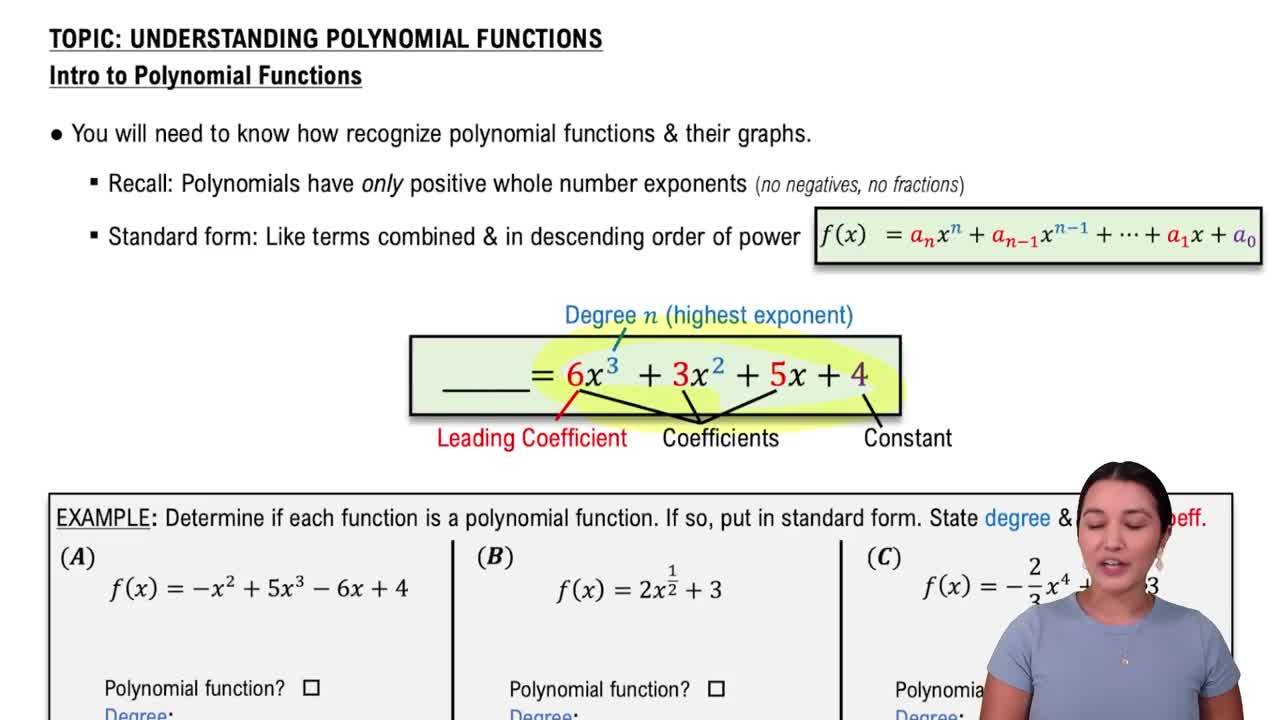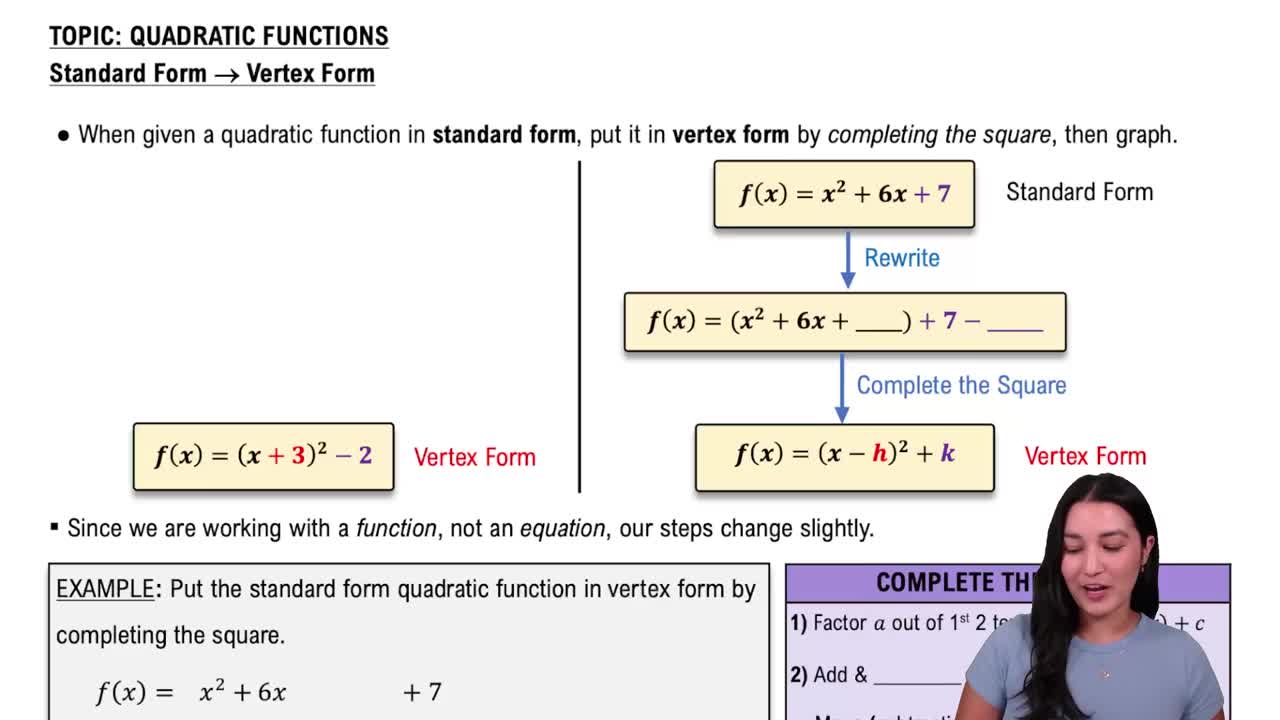Textbook Question
Write each fraction as a decimal. For repeating decimals, write the answer by first using bar notation and then rounding to the nearest thousandth. 5/9
1464
views
 Verified step by step guidance
Verified step by step guidance Verified video answer for a similar problem:
Verified video answer for a similar problem:



 7:39m
7:39mMaster Introduction to Exponent Rules with a bite sized video explanation from Patrick
Start learning